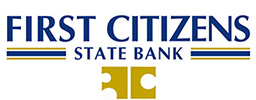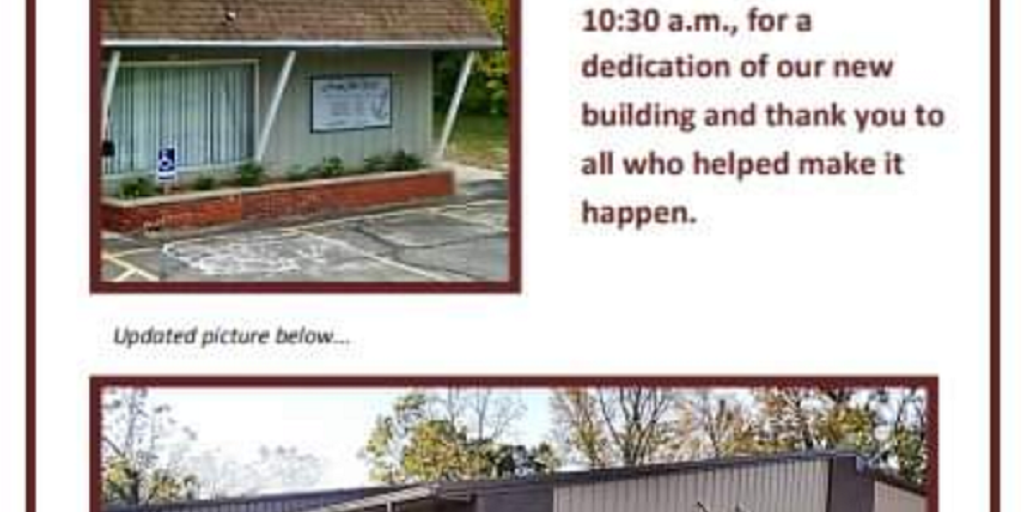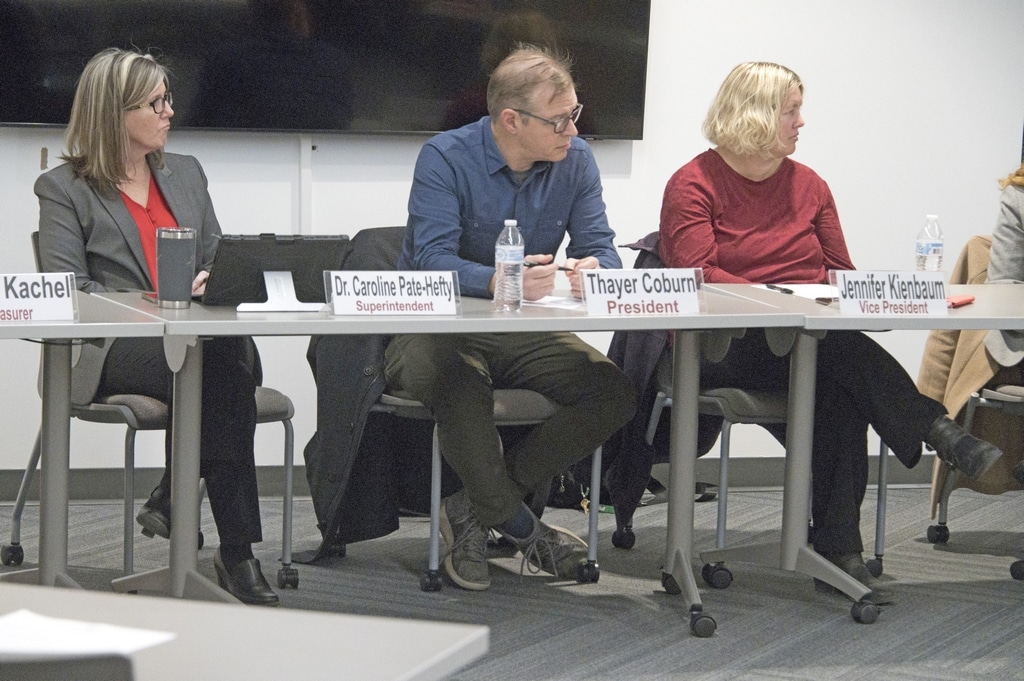
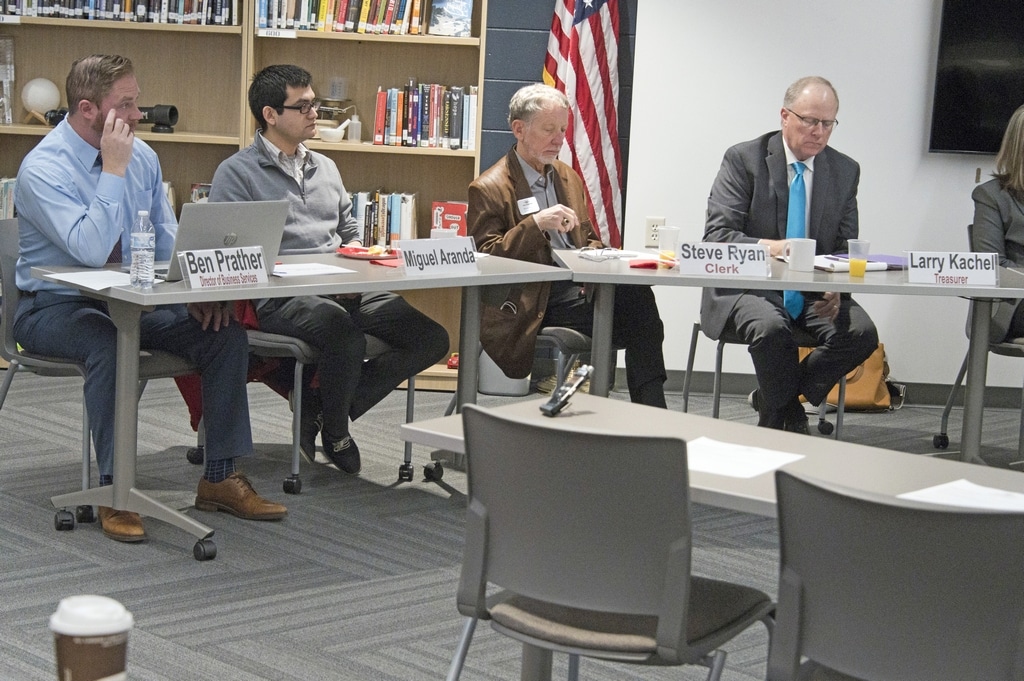
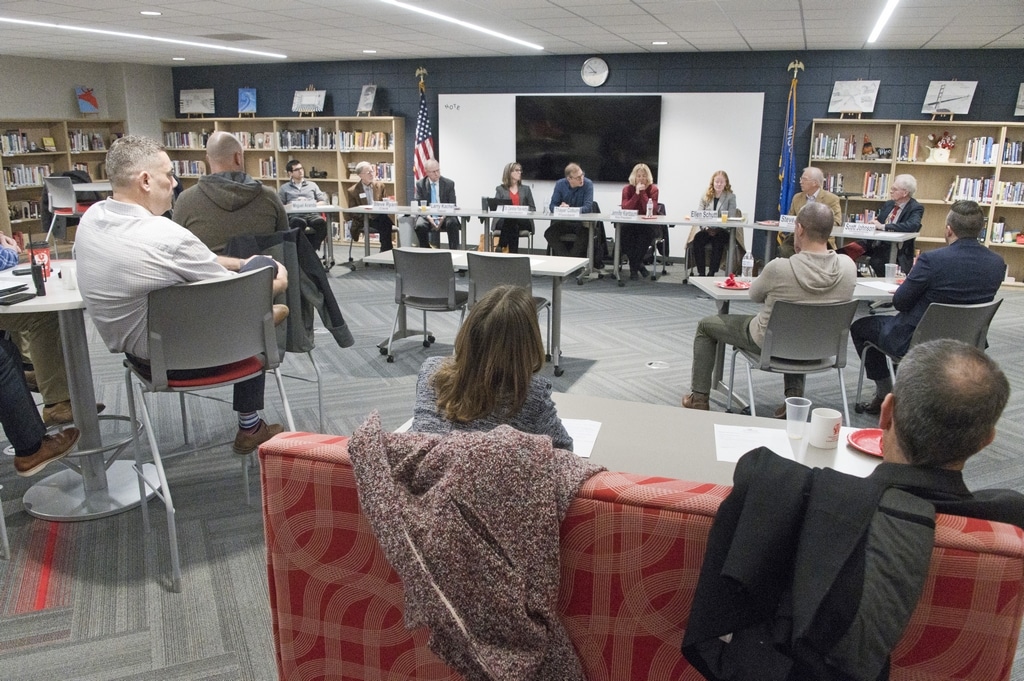
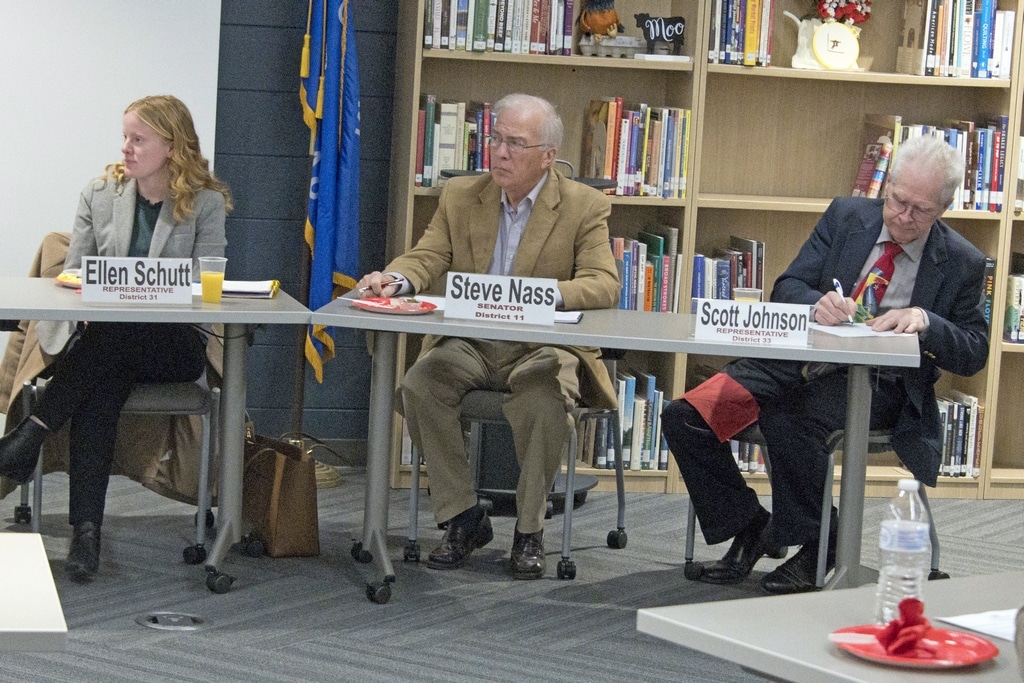
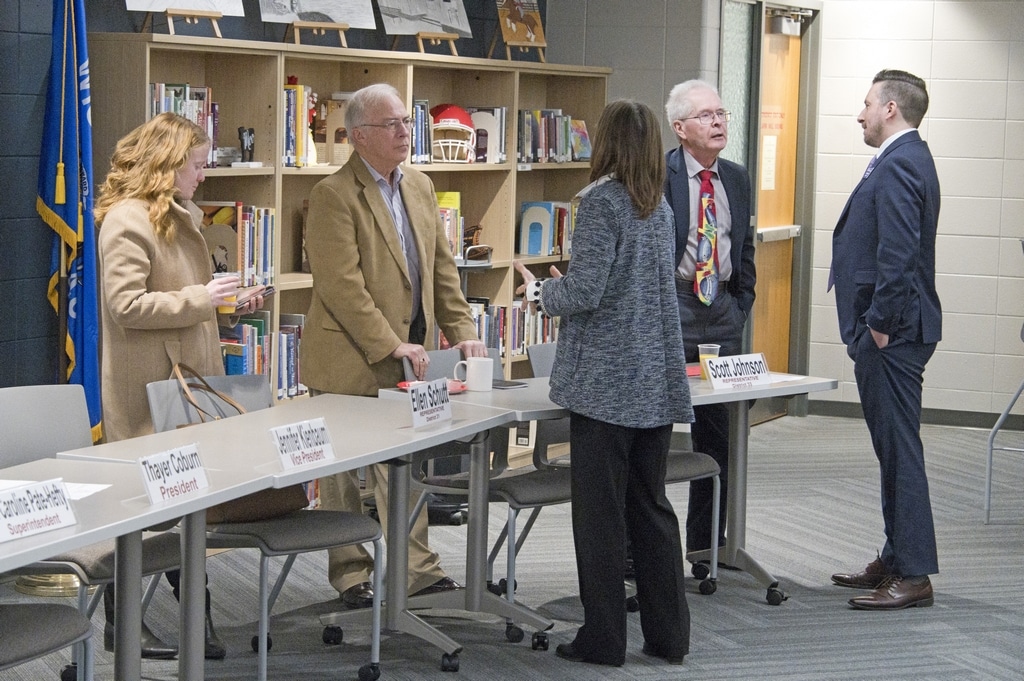
The annual WUSD Legislative Breakfast was held on February 15 in the Whitewater High School Library Media Center. Legislators in attendance were Sen. Steve Nass, Rep. Ellen Schutt, and Rep. Scott Johnson. In addition there were a number of guests, including city and UW-W representatives.
Dr. Caroline Pate-Hefty, WUSD superintendent, provided the following opening remarks, “Thank you all for coming. I appreciate the time you have decided to hear the needs of public schools.
With respect, we want you to know that students and staff in Wisconsin and specifically Whitewater Unified School District, deserve more than zero. Zero budget increase. The current budget simply does not meet the needs required in public schools to educate students and show growth and improvement.
Per-pupil spending on public education nationwide grew by 23% from 2008 to 2018, but only 15% in Wisconsin, an increase that places Wisconsin 38th in the nation in public education spending. That speaks poorly about the value we place on education for our children in our state. 38th?
I was shocked coming from Illinois to see the low rates of categorical aid that are provided to schools in Wisconsin. You should know as you listen today that Whitewater Unified School District is disproportionately impacted by that lack of funding. Here is why- We are classified as a rural district that covers over 200 square miles with 2000 students. About 50% of our enrolled students’ families are at the poverty level. Meaning our students need a higher level of intervention and support.
21.1% of our students are identified as ELL (that has grown significantly in recent years, ending last year with approximately 125 students who were newcomers from Nicaragua), requiring additional staffing and support. That is the highest in the region.
19.4% of our students are identified as having IEP’s, (also significantly over the regional and national average), requiring special education supports and services that are extremely costly.
Sustaining fiscal strength is necessary for the vitality of our schools and community. We ask you to consider funding and policy decisions that will support WUSD schools.
Increase the categorical aid reimbursement rates to 45% in FY24 and 60% in FY25, 75% in FY26 and 90% by FY27. Prior to the 19-21 increase, this appropriation had been frozen for 11 years. Providing categorical aid (spendable dollars) vs. state aid (tax relief) ensures that every district in the state receives the same increase based on the number of students enrolled in their schools.
Please help Whitewater Unified to continue to support the needs of ALL students.”
The district had solicited topics of discussion from staff and board members, and a variety of them addressed the following topics:
Mental health supports & funding – Dr. Lanora Heim, director of pupil services
The Forward Assessment – Caroline Pate-Hefty urged the legislators to look into the costs and benefits of the Forward exam. Although federal accountability requires the adoption of an assessment to evaluate school/district outcomes, Pate-Hefty enumerated some of the implications of the assessment that Wisconsin has chosen. For e.g., although the exam is given in March, results are not available until late July or even in August, which is too late to use the data to support instructional planning/practice. Fourth graders take 11 tests, which span 10 days! Accommodations required for special education and English learners are intensive and consume weeks. There are other assessments that meet the federal standards.
Special Education Funding – Ben Prather, director of business services, indicated that the current state reimbursement rate only covers about 32% of aidable costs. Wisconsin school districts collectively transfer more than $1 billion annually from district general funds to cover the funding gap between required special education costs and current state special education funding, he stated.
Thayer Coburn, president, spoke to the fact that the Legislative Fiscal Bureau recently projected that the state’s budget surplus will hit $7.1 billion by July 2023. He asked, “Will the legislature commit to dipping into that to address educational needs in the state?”
Larry Kachel, treasurer, addressed state funding specifically toward immigration growth and needs. He also encouraged the development of grant programs for industrial arts/technology education courses and equipment.
Brent Mansky, high school principal, addressed the need for state funding for post-secondary options for students.
As the meeting moved towards concluding, the legislators responded to the questions that had been posed, without making any specific commitments.

